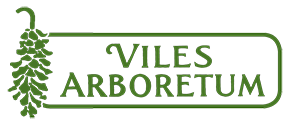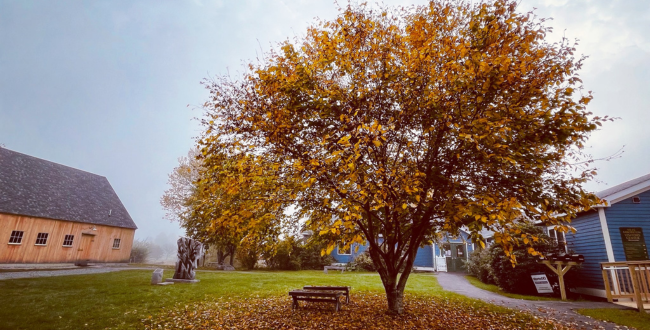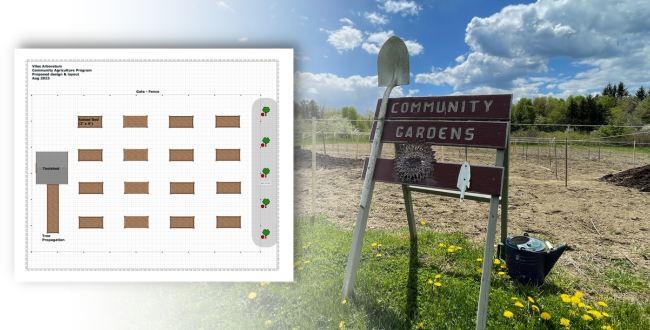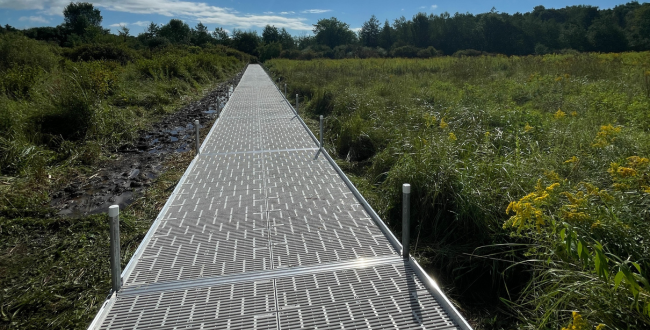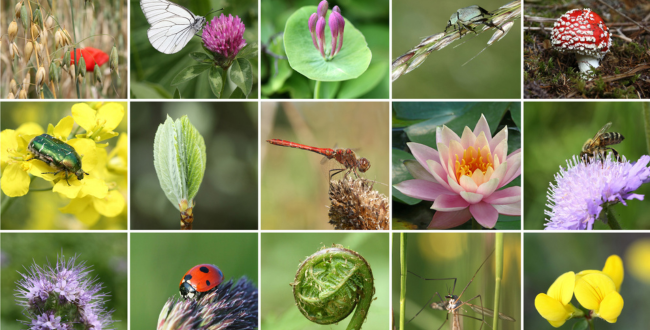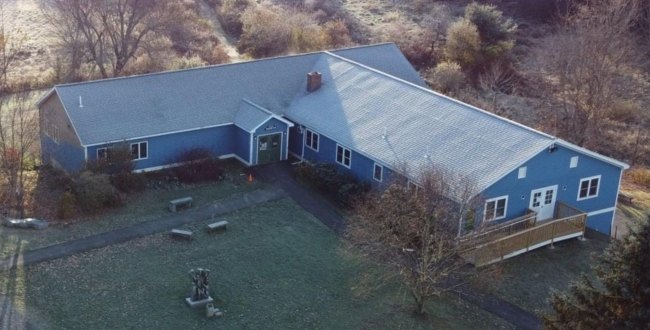While looking out the window of my office on a gray October morning I noticed an abundance of mushrooms had sprouted up on the lawn seemingly overnight. Considering this wasn’t the busiest morning at the Arboretum, we decided to pop down to investigate and see if the mushrooms might inspire some content to work on during a slow day in the office. Few lawn mushrooms could be quite as inspiring as what we found, Amanita muscaria, also known as the fly agaric.
As the days get shorter and the air becomes cooler, you can feel a noticeable change in the world. The leaves, dressed in shades of gold, amber, and crimson, slowly fall to the ground like a beautiful painting created by nature itself. Have you ever wondered why leaves change color in the fall? It's like a magical makeover that trees put on, and it's all thanks to some pretty cool science. Let's learn why it happens, and where at the Arboretum you can see these beautiful colors for yourself!
September 13, 2023, AUGUSTA, Maine — The Maine Department of Agriculture, Conservation and Forestry (DACF) fall foliage spokesperson Gale Ross has announced the start of foliage season throughout the state. The first 2023 Maine Fall Foliage Report, issued each Wednesday throughout the foliage season, reports very little color change throughout the state.
Viles Arboretum is excited to introduce our new Community Agriculture Program (CAP), scheduled to launch in 2024. After dedicated efforts over the past several years by our gardeners, we paused the community garden for 2023 and used the year to assess the program. Through careful research, planning, and collaboration, a clear blueprint has been developed, setting the stage for the program's relaunch.
Viles Arboretum is excited to announce the completion of its Wetland Boardwalk Project! Located on the Outer Loop trail, the boardwalk takes visitors on an immersive journey through a stunning wetland area that is home to a diverse range of flora and fauna. It also provides opportunities to observe a diverse variety of wildlife, including mink, herons, frogs, and turtles.
The Maine Department of Agriculture Conservation and Forestry (DACF) has recently verified the first known occurrence of mile-a-minute weed (Persicaria perfoliata) in Maine. This fast-growing invasive vine, native to India, Asia, and the Philippine Islands, poses a significant threat to nurseries, Christmas tree farms, reforestation projects, and restoration areas, as it can smother young plants and trees under its dense growth.
For all the resources that are (rightfully) dedicated to climate change, much less consideration is given to its parallel relationship with Biodiversity. Biodiversity is the central organizing principle that creates resilience in habitats and ecosystems worldwide. For those not familiar with the concept of biodiversity, simply put it is used to define the “variety of living organisms” found in a defined ecosystem or habitat. Ecosystems and habitats with high biodiversity have a higher resilience to change while those with low biodiversity are more likely to see major breakdowns in ecosystem functioning with the addition of stressors such as climate change, disease and invasive species.
Viles Arboretum and Healthy Communities of the Capital Area unveil a New StoryWalk® Experience
Viles Arboretum and Healthy Communities of the Capitol Area are delighted to announce the launch of a new StoryWalk®, a collaborative project for young people here in Augusta. The StoryWalk® features 18 stations and will showcase a rotation of stories used with our local Maine SNAP-Ed program as well as a selection from beloved Maine Children's authors. Our very first story selection is “A Seed is Sleepy” written by Dianna Hutts Aston and illustrated by artist Sylvia Long.
Nature has a way of captivating our hearts and refreshing our spirits. Situated in the heart of Augusta, Maine, Viles Arboretum beckons visitors to immerse themselves in the wonders of the natural world. Boasting a diverse array of trees, enchanting gardens, and miles of scenic trails, the Arboretum provides an unforgettable experience for nature enthusiasts of all generations.
The Visitor Center at Viles Arboretum serves as a hub for engaging activities and immersive experiences, offering a wealth of opportunities for exploration and learning.
Our popular observation beehive exhibit has returned to the Visitor Center!
Each year in the fall the frames in the observation beehive are returned to a hive box located in the field behind the Visitor Center. This is done so that the bees can respond properly to the cooler winter temperatures and not become confused by the warm temperatures found in the Visitor Center during the winter. Colder temperatures and shorter days will prompt the bees to make several behavioral changes including a process of evicting male bees, known as drones from the hive. The sole purpose of drones is to mate with the queen; during the winter the queen produces fewer eggs eliminating the need for drones. Where the drones are not contributing to hive upkeep they are removed to reduce the strain on food supply.
